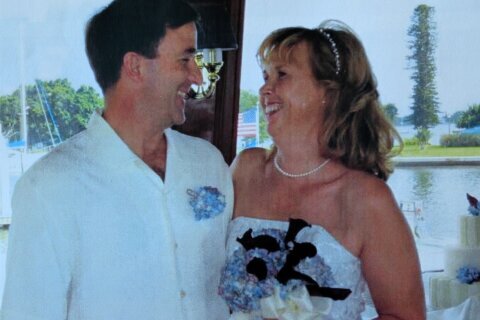For decades, no one knew who the man eventually dubbed by law enforcement as “The Potomac River Rapist” really was.
Eventually, police say genealogy and the scouring of all family trees narrowed it down to a man who was never on investigators’ radar, and who seemingly has no connection at all to any of the victims in those cases.
But when Giles Warrick, a longtime D.C. area resident who moved to South Carolina in 2018, goes to trial this month, prosecutors will be able to use the DNA collected when police knocked on his door in 2019.
After days of arguments last month, a judge said Friday afternoon that the sample collected in 2019 — which police ended up linking Warrick to the crimes — was obtained voluntarily.
Judge Milton Lee spent nearly a half-hour rehashing much of the evidence and arguments, citing audio recordings made by police that suggested the conversation Warrick had with police in his home that morning wasn’t contentious.
Lee noted that Warrick invited police inside when they asked to speak with him. While Warrick told police he had no choice when they asked to rub the inside of his mouth to collect DNA, he also laughed, even if it was a nervous laugh, and police quickly responded that he did have a choice in the matter. A detective told him it would be easier to do it that way, but the choice was his.
“I find that the … consent given by Mr. Warrick, satisfies the demands of the Fourth Amendment,” said Lee.
The judge also ruled that statements made by Warrick in an initial interview can also be admitted, pointing out that police stopped questioning him the minute Warrick asked for a lawyer.
In that interview, Warrick denied any knowledge of the crimes.
While Warrick is connected to several crimes in Maryland and Virginia, it’s the 1998 rape and murder of Christine Mirzayan that he’s being tried for first. She was abducted off Canal Road in Georgetown, dragged into the woods, raped and killed.
Warrick’s defense attorney, Stephen Mercer, did walk out of the courthouse with one win under his belt — when Judge Lee ruled that evidence collected under a search warrant executed at the time of Warrick’s arrest can’t be used.
This is evidence that’s been described by another judge as “consciousness of guilt,” and includes a note to Warrick’s then-fiancée, which prosecutor Sharon Donavan described as a “farewell letter.”
In the letter, Warrick told his fiancée he was turning over titles to her, and explained where she could find some money he had saved up.
“I am so sorry things ended this way,” he wrote. “I left you in a mess, money and house but I never meant for this to happen.”
He asked her not to cry, and promised “all my junk is yours. Please sell it to help pay something.”
But the judge had issues with the warrant, saying it should have specified the items to be searched or seized.
Minutes later, Judge Lee said “warrants that are too general have very difficult times surviving, because they’re not really connected to any specific fact that leads to a fair probability that the evidence exists in a particular place. This warrant fails to provide that level of particularity.”
Jury selection is expected to start after Thanksgiving, with a trial scheduled to run for three weeks.
But the prosecutor said it’s possible as many as 70 witnesses could be called, depending on how the judge rules on other issues that still need to be decided.








